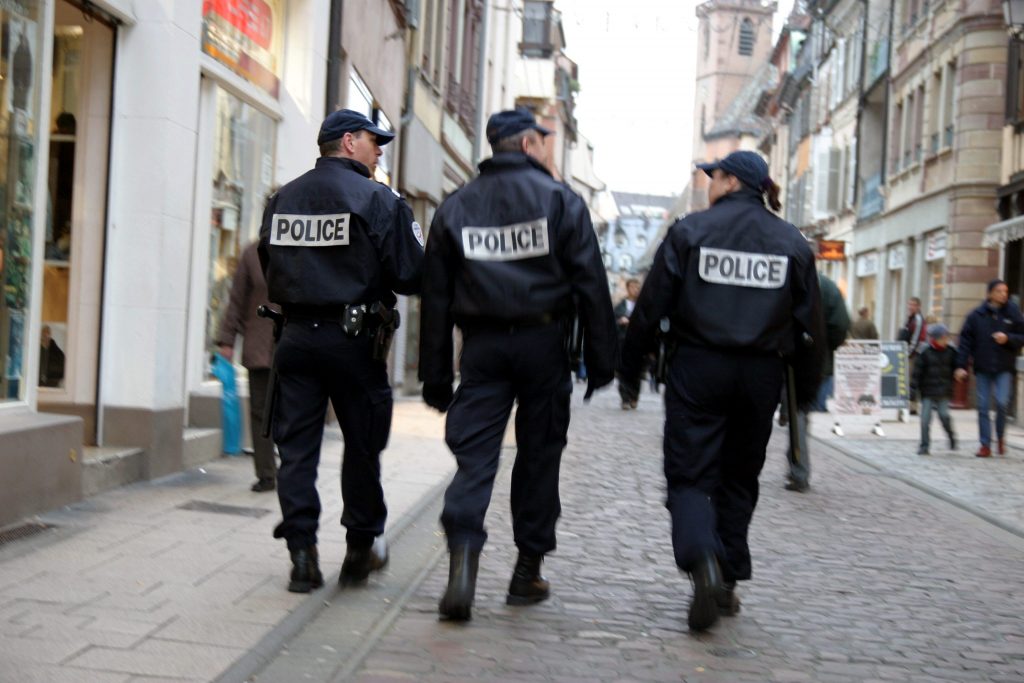
Image Credit: Rama, CC BY-SA 2.0 FR via Wikimedia Commons
By Saul Roth
Violanti (2008) published another study on police suicide ideation. This study was conducted in a mid-size U.S. police department of 930 officers in 1999. The sample included officers of different ranks as well as detectives. Findings revealed that 25% of male officers and 23% of female officers experienced suicidal ideation. Interestingly, the depression rate was twice as high for the female officers as the male officers and higher education was associated with lower depression rates. By contrast, divorced male officers experienced higher rates of depression and older female officers thought of suicide more. Not surprising, this study demonstrates that those officers with more depression were more likely to have suicidal ideation. Marriage was also a protective factor against depression and suicidal ideation, as is true for the general population. For women, both marriage and having children – especially those under the age of two – were protective factors. Women officers may also feel isolation in the male-dominated workplace of the police department (Violanti, 2008). I had my own experience as a new police officer on the NYPD. Before marriage, my life was centered on work. I married after being an NYPD officer for five years. At that point, my life became centered on the family and children. Some officers, however, do well being single throughout their career, but the effects can be negative if one’s life is centered on a profession that involves many negative experiences. Also, close colleagues within the police department might be busy with their family and not have time to listen to experiences incurred by officers earlier in their career.
III. Causes of Stress
Depression is a major problem and cause of stress with police officers. A study of police officers in a large city of Taiwan revealed high rates of depression (Chen & Boyle, 2006). This study was conducted in a department of 4,300 police officers, whereby most of the female offices held clerical positions. Among the 832 officers who participated in the study, the rate of depression was 4%. The general public in Taiwan has a depression rate of less than 1%. Sixty-nine percent of these officers related their depression to the work environment. As in Violanti’s (2008) study, those with more education had lower rates of depression. In this study, it was noted that these officers held higher positions in the department and might not have experienced the same stress as line officers. Like other studies, this one showed lower depression rates among the older officers, indicating that there might be a coping skill developed after years in the profession. Older officers might accept positions that do not include work on patrol and might be more comfortable in their family and economic situations. Even though the study indicated that 69% of the depressed officers related their condition to their job, the study also notes that a strong predictor of depression is family difficulties. Such problems include little time spent with the family, marital difficulties, and child-rearing problems. These problems arise from the work schedule though and can be included as a wok stress. Another primary predictor of depression was competition, honor, and workload. Officers often would not admit to any shame or guilt because of the image the profession upholds (Chen & Boyle, 2006).
There are many different contributing factors that can lead to police suicidal ideation and suicide. In police work, there are times of work overload, shift work, and exposure to life-threatening situations. The organization of the police department is another significant source of stress, including the politics of the police department, a lack of resources, a lack of support and recognition for the officer’s performance, and overpowering managers. Then, the officers have to deal with other components of the criminal justice system, such as the stress of dealing with criminal court, grand juries, traffic court, family court, and sometimes-civil tort courts. Officers also incur a lot of stress from dealing with the community. Most officers feel they are not appreciated by the community they serve and that the community does not support them. Then, there is the stress of the police department’s effects the officer’s family life. The shift work, weekend work, and temporary assignments disrupt the officer’s family life. It is a constant balancing act for the officer (Loo, 2003).

Recent Comments